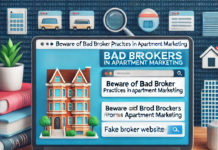This article was written by:
Lewis Robinson, Business Consultant and Writer.
Before a customer can click the “buy now” link in a marketing email, they have to open that email. That’s where the power of an effective email subject line comes in. A strong subject line catches the recipient’s eye and entices them to learn more. Without it, a company reaches just a faction of its potential customers.
Before a business can benefit from the impact of a well-crafted subject line, it’s important to understand how to write one. Here are some tips for creating an email subject that will promote action.
-
Keep Subject Lines Short
According to Convince & Convert, 35% of customers open a marketing email based solely on the subject line. The same study reports that more than 80% of email subjects run 60 characters or less, with the average length coming in around 44 characters. Effective marketing subject lines use minimal space to draw the reader in. Many customers read emails on their mobile devices. Subject lines should be short enough to appear fully on a standard smartphone screen.
-
Make It Personal
Personalized email offers have nearly a 30% higher open rate than those that aren’t personalized, according to statistics compiled by Social Media Today. Adding personalization to marketing emails also drives higher click-through rates and has been shown to generate more revenue. Brands can add a personal touch to email subject lines by including the recipient’s name, targeting an offer based on their past buying behavior or including the word “you” related to the desired action.
-
Try Emojis
Customers receive floods of promotional emails in their inboxes every day, particularly around busy sales seasons like Black Friday or President’s Day. Adding emojis can make a company’s email stand out from the fray by incorporating images and levity. Before adding emojis to a subject line, consider if it is in line with the brand’s image.
-
Beware of Words That Trigger Spam Filters
If an email gets caught in a recipient’s spam filter, there is no chance they will open it. Terms like “free,” specific prices or discount rates, or anything else that is too promotional can alert an email platform that an email is spam. Instead of using these terms, focus the subject line on the benefit to the customer.
-
Encourage Action
Email subjects that include a deadline for the end of a sale or last-minute deal can catch the reader’s attention and motivate them to open the message now rather than later. Companies that implement smart email tracking are able to understand which customers opened an email and clicked the call-to-action button. From there, they can follow up effectively and encourage the customer to complete their purchase.
-
Be Unexpected
Depending on a brand’s personality, it may be appropriate to use humor, puns or pop culture references in email subject lines. If a business’s customers would respond well to humor and it makes sense with the rest of the marketing strategy, adding a joke into a subject line can increase open rates.
-
Use Preview Text
Most email marketing platforms allow businesses the option to put an additional message in the preview text area that shows up in a user’s inbox or as an alert when the email comes in. Take advantage of this additional space by sharing details about a specific offer or the date of an upcoming event. If the main subject line uses humor, consider using the preview text to add a second punchline to the joke.
-
Test and Refine
For large email campaigns, consider implementing an A/B test of potential subject lines. Segment 10% of the overall campaign list, and send option A to half that group and option B to the other half. If one subject line performs significantly better than the other, use that option to send a message to the rest of the list. Note that this method works best with large recipient lists.
An effective email subject line is the first step to a customer opening a marketing email and starting down the path to making a purchase.
Lewis Robinson is a business consultant specializing in CRM and sales. He’s helped start several small businesses. He currently spends his time as a writer and personal consultant.





